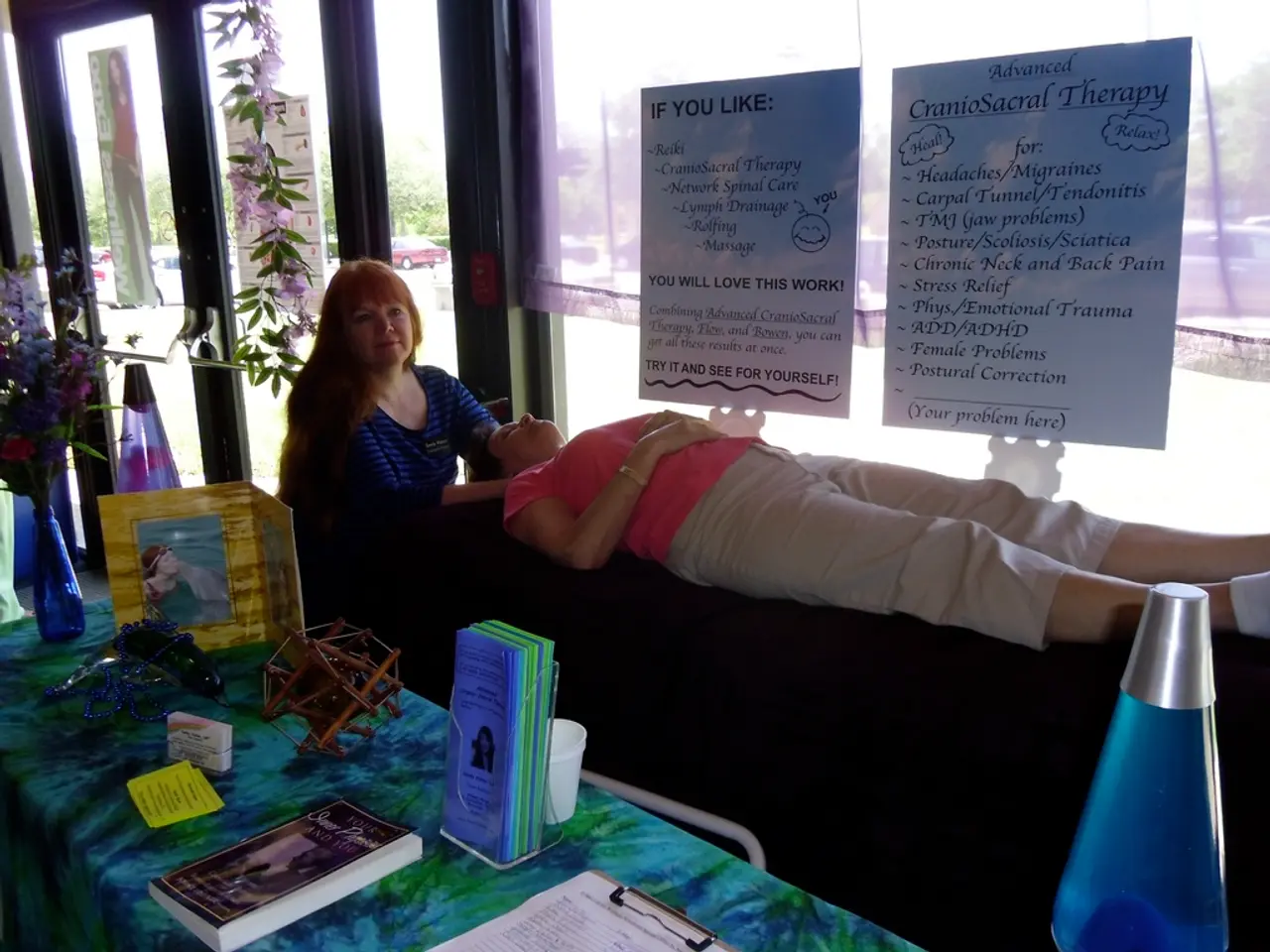Revealing Hidden Aspects of Dissociative Conditions
Dissociative disorders are mental health conditions that affect a significant portion of the population, with prevalence rates estimated between 0.4% and 7.3%, depending on the specific disorder and population studied [1][5]. These disorders are characterized by a separation between thoughts, feelings, and actions.
One of the most common types of dissociative disorders is Depersonalization-Derealization Disorder, which is characterized by a pervasive sense of detachment, with individuals feeling as though they are observing their own actions, emotions, or thoughts from a considerable distance [2]. Another type is Dissociative Amnesia, which involves a notable difficulty in recalling crucial personal information or significant events, often linked to traumatic experiences [2]. The most well-known dissociative disorder is Dissociative Identity Disorder (DID), where multiple distinct identities coexist within one individual, each with its own set of memories, emotions, and behaviors [2].
Dissociative disorders can have severe psychological effects, including sudden and unexpected shifts in mood, feelings of detachment, memory problems, sleep problems, sexual problems, depression, anxiety disorders, eating disorders, problematic drug use, self-harm, and difficulties in personal relationships, at school, and at work [1].
These disorders often emerge as adaptive responses to cope with traumatic events or experiences. They can co-occur with other mental health disorders, such as Post-Traumatic Stress Disorder (PTSD), Major Depressive Disorder (MDD), Anxiety Disorders, Borderline Personality Disorder, Substance Use Disorders (SUDs), Eating Disorders, and Psychotic Spectrum Disorders [1][2][3][4].
The co-occurrence of these conditions reflects the complex trauma and stress-related etiology underlying many dissociative presentations [1][2][5]. Complications of dissociative disorders, such as depression, anxiety, and personality disorders, escalate the strain on relationships, making it crucial to create a supportive environment for individuals with these disorders [3].
Support groups and family therapy can be valuable interventions for individuals with dissociative disorders. Cognitive-behavioral therapy (CBT) and Dialectical behavioral therapy (DBT) can be instrumental in identifying and altering the cognitive processes that contribute to disconnection and distress [1].
Partners of individuals experiencing dissociative disorders may feel abandoned, unheard, and unloved. It is essential to remember that these individuals may not be fully present in the relationship, resulting in emotional and physical neglect. Seeking timely help is a proactive step toward understanding and managing the impact of dissociative disorders on one's life.
The goal of treating dissociative disorders is to provide individuals with effective tools to manage their symptoms and enhance overall well-being. By understanding and addressing these disorders, we can help those affected lead happier, healthier lives.
References:
[1] Ross, S. (2014). Dissociative Disorders. In Oxford Textbook of Psychiatry (pp. 578-584). Oxford University Press.
[2] American Psychiatric Association. (2013). Diagnostic and Statistical Manual of Mental Disorders (5th ed.). Arlington, VA: American Psychiatric Publishing.
[3] van der Hart, O., & Friedman, M. (2017). The Haunted Self: Structural Dissociation and the Treatment of Chronic Traumatization. Routledge.
[4] Putnam, F. W. (1991). Dissociation in multiple personality disorder and other psychotic states: a review. Journal of Nervous and Mental Disease, 179(11), 667-677.
[5] Ross, S. (2018). Dissociative Disorders: Diagnosis, Treatment, and Controversies. Routledge.






